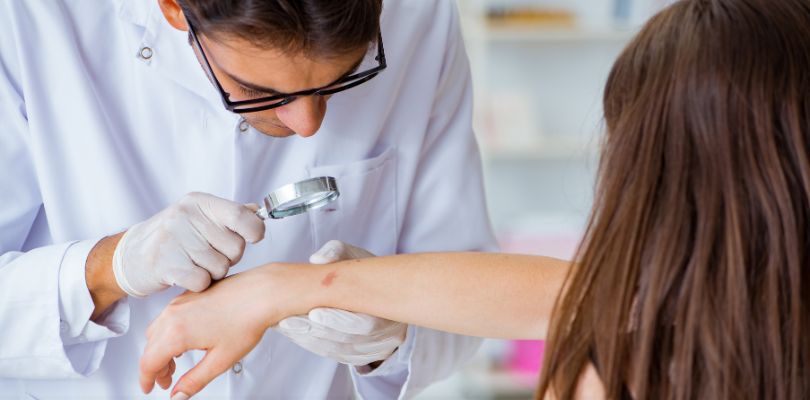From Surgery to Sunshine
It's important to understand the different treatment options available for skin cancer. Erivedge (vemurafenib) is a medication used to treat Advanced Basal Cell Carcinoma, a type of skin cancer. It works by targeting and blocking the activity of a specific protein that helps cancer cells grow.
Erivedge
Erivedge (vismodegib) is a medication used to treat adults with advanced basal cell carcinoma, a type of skin cancer that has spread or cannot be treated with surgery or radiation. It works by blocking a specific pathway in cancer cells, preventing them from growing and spreading.
10 Skin Cancer Treatment Options
1. Surgery
Surgery is the most common treatment for skin cancer. The doctor removes the cancerous skin and some surrounding healthy tissue. This helps make sure all the cancer is gone. There are different types of surgery, including:
- Excisional surgery: The doctor cuts out the cancerous tissue and some normal skin around it.
- Mohs surgery: This is a special technique where the doctor removes the cancer layer by layer, checking each layer for cancer until all of it is removed.
2. Cryotherapy
Cryotherapy uses extreme cold to destroy cancer cells. The doctor applies liquid nitrogen to the cancerous area, freezing it. This treatment is often used for superficial skin cancers, like basal cell carcinoma.
3. Topical Chemotherapy
Topical chemotherapy involves applying a special cream or ointment directly to the skin cancer. This treatment helps kill cancer cells on the skin's surface. It is usually used for early-stage skin cancers or precancerous spots.
4. Radiation Therapy
Radiation therapy uses high-energy rays to kill cancer cells. This treatment is often used for skin cancers that cannot be removed by surgery. It may also be used after surgery to kill any remaining cancer cells.
5. Photodynamic Therapy
Photodynamic therapy (PDT) uses light to treat skin cancer. First, the doctor applies a special medication that makes cancer cells sensitive to light. Then, a special light is used to destroy the cancer cells. PDT is often used for precancerous spots and some types of skin cancer.
6. Immunotherapy
Immunotherapy helps the body’s immune system fight cancer. This treatment uses medications that boost the immune response against cancer cells. It is often used for advanced skin cancers, such as melanoma.
7. Systemic Chemotherapy
Systemic chemotherapy uses strong medications to kill cancer cells throughout the body. This treatment is not common for early-stage skin cancers but may be used for advanced melanoma that has spread to other parts of the body.
8. Targeted Therapy
Targeted therapy uses medications that specifically attack cancer cells while sparing healthy cells. These drugs are designed to target specific mutations in cancer cells. This treatment is often used for advanced melanoma.
9. Clinical Trials
Clinical trials are research studies that test new treatments. If you have skin cancer, you might be eligible to participate in a clinical trial. These trials can offer access to the latest treatments and therapies that are not yet widely available.
10. Follow-up Care
After treatment, regular follow-up care is important. This may include check-ups with your doctor and regular skin examinations. Follow-up care helps monitor for any signs of cancer returning and ensures you are staying healthy.
Managing Skin Cancer
If you have been diagnosed with skin cancer, it is essential to discuss your treatment options with your doctor. The right treatment will depend on the type of skin cancer, its stage and your overall health. Remember that early detection and treatment are key to successfully managing skin cancer. If you notice any unusual changes in your skin, like new moles or changes in existing moles, talk to your doctor right away. With the right treatment and care, many people with skin cancer go on to live healthy lives.
